The recent agreement by India and Pakistan to move toward normalization of trade ties and liberalize visa restrictions on business travellers represented the first time in more than a decade that talks between the two countries have resulted in a concrete positive outcome. A new era of bilateral trade could well be afoot. But the development is best framed as “a logical consequence to a gradual rapprochement that has been occurring between India and Pakistan,” says Arif Rafiq, the editor of Pakistan Policy Blog and president of Vizier Consulting, a Middle East and South Asia strategy company. Rafiq, also a […]
Diplomacy & Politics Archive
Free Newsletter
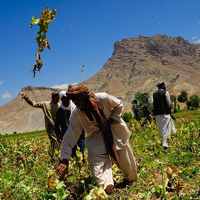
In a speech at the Center for Strategic and International Studies (CSIS) in Washington last Friday, Viktor Ivanov, the director of Russia’s Federal Drug Control Service (FSKN), laid out an ambitious agenda for increased Russia-U.S. cooperation in several counternarcotics areas, characterized by “new thinking” on a variety of issues. Ivanov, who stopped in Washington after attending the fifth meeting of the Counternarcotics Working Group of the U.S.-Russia Presidential Commission in Chicago, proposed creating an integrated command for counternarcotics efforts in Afghanistan that would include representatives from the FSKN, the U.S. Drug Enforcement Administration and the NATO-led International Security Assistance Force […]
Japanese Prime Minister Yoshihiko Noda and South Korean President Lee Myung-bak agreed to expand the two countries’ currency swap arrangement last month in an effort to stabilize their currency markets. In an email interview, Jeff Kingston, the director of Asian studies at Temple University Japan, discussed Japan-South Korea relations. WPR: How have diplomatic, trade and security relations between South Korea and Japan evolved over the past decade? Jeff Kingston: During Japanese Prime Minister Junichiro Koizumi’s tenure from 2001 to 2006, relations had been stymied by disputes over historical issues dating back to World War II. The deep freeze resulted from […]
President Barack Obama’s Asian trip is being hailed as a diplomatic triumph, and to the extent that the three-stop tour delivered both concrete and symbolic accomplishments, that assessment is correct. In Hawaii, Obama strengthened the chances that the Trans-Pacific Partnership will become the cornerstone of future trade integration in the region. In Australia, he announced a small but symbolically resonant agreement to station U.S. Marines at an Australian base. And at the East Asia Summit in Indonesia, he very visibly underscored America’s renewed commitment not just to Asia, but to the region’s multilateral institutional architecture that the Bush administration had […]

From revelations about illegal arms sales to leaks to the media about military misconduct in Iraq, whistleblowing by both private and public sector employees has increasingly become a powerful, if often controversial, form of dissent. The United Nations, the Organization for Economic Cooperation and Development (OECD) and other intergovernmental bodies have recognized that there is indeed a right to expose corruption, wrongdoing by public bodies, serious threats to health, safety or the environment, and breaches of human rights or humanitarian law. Whistleblowing is protected by both the individual’s right to freedom of expression as well as the public’s right to […]
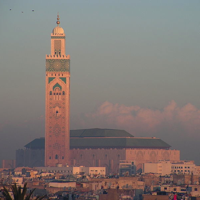
Religion is widely understood to be a powerful force in domestic and international politics in the Middle East, Southeast Asia, the Asian subcontinent, sub-Saharan Africa and Central Asia. It is used by multinational groupings — the Organization of Islamic Cooperation (OIC), for instance — to justify international cooperation and by both political figures and terrorists to justify violence. Since the 1990s, religion has become so pervasive in international politics that it is almost impossible to imagine that it has not always attracted the attention that it now commands. In fact, however, the salient role of religion in contemporary international political […]

Sixty-three years ago, the United Nations’ labor agency, the International Labor Organization (ILO), adopted its most basic treaty, Convention No. 87 on the Freedom of Association and Protection of the Right to Organize, to advance the human rights of workers. The following year, it added Convention No. 98 on the Right to Organize and Collective Bargaining. These two conventions, neither of which the United States has ratified, form the bedrock of human rights for workers, and in 2011 the rights they protect are the most abused in the world of labor. Many human rights abuses confront workers today, from slave […]
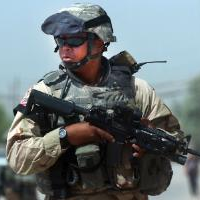
There is perhaps no better measure of the failure of American strategy over the past decade than the fact that in both Iraq and Afghanistan, tactical objectives have been used to define victory. In particular, both wars have been characterized by an all-encompassing obsession with the methods and tactics of counterinsurgency. To be sure, the tactics of counterinsurgency require political and cultural acumen to build host-nation governments and economies. But understanding the political aspects of counterinsurgency tactics is fundamentally different from understanding core American political objectives and then defining a cost-effective strategy to achieve them. If it is to avoid […]
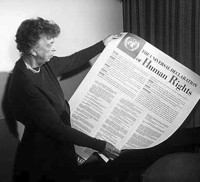
Eleanor Roosevelt once said that universal human rights begin “in small places, close to home.” It might be more accurate to say that they begin in the home, as the most intimate expression of whether human rights are respected within a society occurs between husbands and wives. Too often, however, the circumstances under which men and women come together to form households fall short of meeting basic standards of human rights. In Yemen, Sudan, Nigeria, Colombia and a number of other countries, it is legal for girls to be married younger than age 16. In many nations where child marriage […]
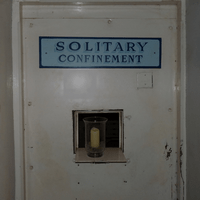
In July, a group of prisoners in the Security Housing Unit (SHU) of California’s Pelican Bay State Prison went on a hunger strike to protest their conditions of confinement. Central to the prisoners’ complaints was the fact that for years and, in some cases, for decades, they have been held in prolonged and indeterminate solitary confinement with few privileges and opportunities to engage in productive programming and activities. Importantly, as one prisoner put it in a letter to the informational website Solitary Watch, they were asking for “human justice, . . . fairness, compassion, positive reform, dignity . . . […]
Indian Vice President Hamid Ansari paid a six-day visit to Turkey last month. In an email interview, Michael B. Bishku, a professor of history at Augusta State University, discussed India-Turkey relations. WPR: What is the recent history of India-Turkey relations? Michael B. Bishku: Bilateral relations between Turkey and India experienced a renaissance after the 2002 Turkish parliamentary elections that brought the mildly Islamist Justice and Development Party (AKP) to power. This is in part due to Turkey’s “zero-problems” foreign policy — initiated by Ahmet Davutoglu, first as Ankara’s chief foreign policy adviser and more recently as foreign minister — which […]
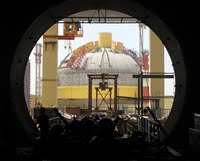
If the phenomenon of nuclear renaissance has a true believer, it is India. In the next decade, India envisages monumental growth in its nuclear energy production. Today, nuclear energy contributes only 3 percent of the country’s total energy mix — a meager 4,200 megawatts. By 2020, India plans to increase nuclear energy production tenfold, to 40,000 MW. But the question now facing New Delhi is whether hostile public opinion will scuttle India’s nuclear energy expansion. Massive anti-nuclear protests in India have brought progress on the Koodankulam nuclear power plant to a grinding halt. Before that, the Jaitapur nuclear project ran […]
Thanks to the terrorist attacks of Sept. 11 and the two wars they spawned, it seemed like the near entirety of President George W. Bush’s two terms in office were characterized by efforts to define, harness and exploit fear. Despite living in the most peaceful, prosperous and predictable period in world history, Americans became convinced that they faced an unending era of war, impoverishment and chaos. That muddled mindset put us painfully out of touch with the rest of the planet. Enter then-Sen. Barack Obama, whose masterful presidential campaign in 2008 spoke openly and honestly about healing that growing rift. […]
Geopolitical tension between China and United States seemed to reach new heights this week, with the U.S. announcing a new troop presence in Australia and China reacting to the announcement with a predictable level of irritation. But China’s own evolving posture is equally worthy of scrutiny as the strategic chess match between the two grows increasingly militarized. Most recently, China announced that five patrol ships from one of its maritime forces — the Yunnan Provincial Border Control Corps — will be deployed along the Mekong River, which runs from China along Laos’ borders with Myanmar and Thailand, and into Cambodia […]
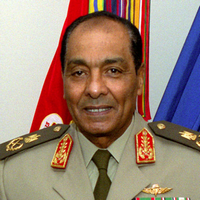
CAIRO — On Jan. 28, the Egyptian revolution’s “Day of Anger,” revolutionary protesters drove security forces loyal to the ruling regime from Cairo’s streets. As Egyptian army tanks rolled into Tahrir Square to fill the security vacuum, thousands cheered the arrival of what they saw as stability amid the chaos of the uprising. And when then-President Hosni Mubarak finally abdicated power on Feb. 11, most Egyptians were relieved to see the Supreme Council of the Armed Forces (SCAF), a body of military leaders normally headed by the president, take control. “During the Egyptian revolution, you had a sense of the […]
